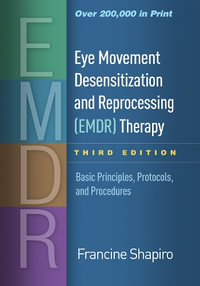The definitive guide to motivational interviewing (MI) for health care practitioners has been completely revised to reflect important developments and make the approach even more accessible. When it comes to helping patients manage chronic and acute conditions and make healthier choices in such areas as medication adherence, smoking, diet, and preventive care, good advice alone is not enough. This indispensable book shows how to use MI techniques to transform conversations about change. Even the briefest clinical interaction can serve to build trust, clarify patients' goals as well as reasons for ambivalence, and guide them to take positive steps. Vivid sample dialogues, tips, and scripts illustrate ways to incorporate this evidence-based approach into diverse health care settings. New to This Edition *Most of the book is entirely new. *Restructured around the current four-process model of MI (engaging, focusing, evoking, and planning). *Incorporates lessons learned from the authors' ongoing clinical practice and practitioner training workshops. *Chapters on advice-giving, brief consultations, merging MI with assessment, MI in groups, and making telehealth consultations more effective. *Additional practical features--extended case examples, "Try This" activities, and boxed reflections from practitioners in a range of contexts. This book is in the Applications of Motivational Interviewing series, edited by Stephen Rollnick, William R. Miller, and Theresa B. Moyers.
Industry Reviews
"Whether you are a health care professional-in-training or an experienced practitioner, this book is for you! The second edition is chock-full of information on current everyday challenges in a busy practice, including medication adherence, pain management, vaccine hesitancy, weight loss, addressing multiple behavior changes, working with hostile patients, and using MI remotely. The book weaves together the spirit of MI and micro-skills with newer processes of engaging, focusing, evoking, and planning, which are essential to facilitating behavior change. Highlights include practitioners' reflections, practical exercises, annotated clinical scenarios, and sample open-ended questions for each process. This book can help you rediscover the joys of clinical work and prevent burnout by using MI to create more satisfying, efficient, and effective patient conversations."--Melanie A. Gold, DO, DMQ, Professor of Pediatrics and Population and Family Health, Columbia University Irving Medical Center "Health care has been stuck in the 'righting reflex,' trying to fix patients by projecting science onto them. But to truly shift towards healthy outcomes, patients want our hearts and our ears before our science. This book guides us towards a process of care that is more effective for those we serve and more rewarding for ourselves. The second edition thoroughly updates this classic resource for delivering value-based care."--David Rakel, MD, Department of Family Medicine and Community Health, University of Wisconsin School of Medicine and Public Health "An essential handbook for any practitioner who strives to have a positive impact on people's health and well-being. Written with the busy clinician in mind, this second edition guides you through the spirit and skills in a way that makes MI feel accessible and easy to implement in high-pressure environments. I will keep this book by my side in every meeting with clients. I cannot think of a single area in health care where this book would not be needed."--Orla Adams MSc, primary care dietitian, Cardiff and Vale University Health Board, United Kingdom; member, Motivational Interviewing Network of Trainers (MINT) "Full of helpful tips to help clinicians guide their patients to achieve better health outcomes. I have been using the principles of MI since I first had the pleasure to learn this impactful approach more than 20 years ago. Each section of the book describes a step in the journey of helping people change their behavior by having constructive conversations during brief clinical visits. The second edition revisits and refines MI techniques in a practical, teachable format. All providers should become familiar with these critical elements of behavior change."--Robert A. Gabbay, MD, PhD, FACP, Chief Scientific and Medical Officer, American Diabetes Association; Associate Professor of Medicine, Harvard Medical School "As an internist, when I first learned MI, a colleague suggested that I try it with patients who had uncontrolled diabetes or hypertension, the bread and butter of my practice. Only then did I see the opportunity to sprinkle MI into every primary care interaction. This wonderful book provides scenarios relevant to diverse medical specialties and settings, helping clinicians to immediately apply the spirit, processes, and powerful skills of MI. It provides timely insights into using MI remotely, in groups, and to address vaccine hesitancy. The case studies in the final section pull it all together and challenge learners to think about how they would respond and what they would say, thus preparing them to hit the ground running with their own patients."--Damara Gutnick, MD, Departments of Family and Social Medicine; Psychiatry and Behavioral Sciences; and Epidemiology and Population Health, The Albert Einstein College of Medicine-
























